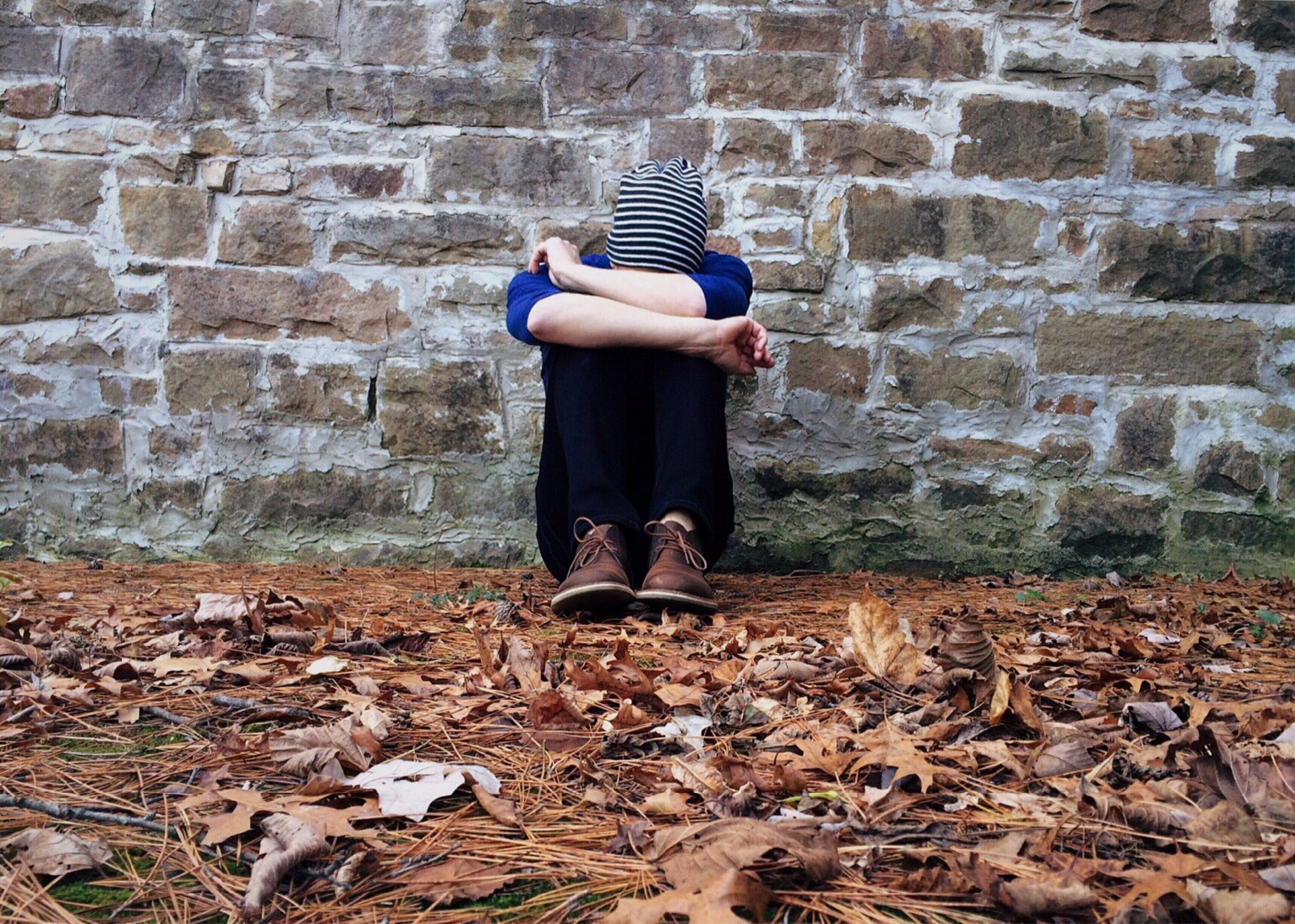11 Signs of a Toxic Friend: Is Your Friendship Unhealthy?
Friends are meant to bring joy and laughter into our lives. They should be there for us in times of need and vice versa. But unfortunately, this isn’t always the case. Friendships can become toxic and even detrimental to our mental health.

Friends are meant to bring joy and laughter into our lives. They should be there for us in times of need and vice versa. But unfortunately, this isn’t always the case. Friendships can become toxic and even detrimental to our mental health.
Maybe they always make you feel bad about yourself, or they’re always trying to control what you do. Perhaps they just don’t respect your boundaries. Whatever the case may be, it’s important to be able to recognize signs of friendship toxicity to protect your mental health.
So, how do you know if your friendship is heading down the wrong road?
11 common toxic friend signs
We’ve all had friends who are, shall we say, less than great for us. But it can be hard to pick up on the signs when you’re caught up in it. So here are 11 common signs that you may have a toxic friend.

1) They try to change you.
If your friend is constantly telling you that you need to change the way you dress, the way you talk, or the way you act, that’s a red flag. Everyone is entitled to their own opinions, but nobody has the right to try and change who you are as a person. Friendship should be about acceptance, not transformation.

2) They are always talking about themselves.
If your friend only ever talks about themselves, and they never show any interest in hearing about your life, then it’s a sign that your friend doesn’t truly care about you. Friendships should be a two-way street, where you both can share your stories and experiences. That’s how you build a real connection.

3) They constantly compete with you.
If your friend is always trying to compete with you – whether it’s in grades, looks, or anything else – it’s a sign that your friendship is unhealthy. A true friend should be there to support and encourage you, not constantly trying to outdo you. Real friends are happy for each other’s successes, not jealous.

4) They don’t respect your boundaries.
If your friend doesn’t understand or respect the things that are important to you, then that friendship is probably not worth your time and energy. You should never feel like your friend is forcing you to do things that make you uncomfortable. Respect and understanding are essential ingredients in any healthy relationship, including friendships.

5) They often make you feel bad about yourself.
A good friend will build you up and bring positivity to your life. If your friend is always putting you down, making snide remarks, or making you feel bad about yourself in some way, then that’s not a healthy friendship. However, that’s not to say your friends should only ever say nice things. When a friend shares constructive criticism while having your best interests at heart, this can actually be helpful to you in the long run, even if it’s painful to hear.

6) They don’t care about your feelings.
If you’re constantly being ignored, disregarded, or downright insulted, then it’s a sign that your friend doesn’t really care about you. A true friend will value and respect your feelings and emotions, not treat them like they don’t matter. Strong friendships are built on knowing that you care about each other’s well-being and happiness.

7) They take advantage of your generosity.
Friendships should be give-and-take relationships. If your friend is always taking and never giving, it shows a lack of balance and reciprocity. That’s not sustainable in the long run. Friends are all about communication, so if this is the only red flag, you can try explaining how you feel and see if things improve.

8) They never apologize for their behavior.
Everyone makes mistakes. A good friend will own up to theirs and apologize when they’ve hurt someone. If your friend can never admit when they’re wrong or offer an apology after hurting you, then that shows a serious lack of maturity and empathy. It’s another sign that your friend is toxic.

9) They gaslight you.
Gaslighting is a form of emotional abuse where someone tries to make their victim doubt their own reality. It doesn’t just happen with romantic partners, it can happen with toxic friends too. If this is happening in your friendship, it needs to stop immediately. You should never feel like your friend is trying to manipulate you.

10) They are unreliable.
You should be able to depend on your friends; that’s practically the definition of a friendship. If your friend is always flaking out or not there for you when you need them, it’s a sign that they don’t really care. Genuine friendships involve being there for each other in times of need. When someone is consistently unreliable, it shows that they are always prioritizing their own needs above yours.

11) They have a history of toxic relationships.
If someone has had a string of toxic friendships, there’s a good chance that issues lie with them. After all, they’re the common denominator. There is a chance that someone has simply been unlucky with their previous friendships, but it’s unlikely. It’s not a dealbreaker in itself, but it’s certainly a red flag and something you should bear in mind.
No one deserves to be in an unhealthy friendship; it’s important to recognize and act on the signs of toxicity so that you can protect yourself and your well-being.
Why it’s so important to weed out toxic friendships
It’s so important to weed out toxic friendships because, in the long term, you will be happier. Ending a toxic friendship is similar to a romantic breakup in a lot of ways. At first, you will likely experience feelings of loss and sadness. If they were a close friend, you may reminisce about the good times you shared together, and you might feel like there’s a hole in your life.
But in time, you will feel lighter and liberated. When you remove a toxic person from your life, after the mourning period is over, you’ll feel a sense of freedom. If a friend exhibits characteristics that don’t align with your core values, such as being untrustworthy, unreliable, or disrespecting you, you should let them go.
You’ll feel emotionally and physically better for it. You’ll be able to spend more time pursuing your passions and seeing people who bring happiness to your life. Essentially, you’ll save energy for things that really matter to you.
How to break off a toxic friendship
If any of the toxic friend signs we discussed above ring true in any of your friendships, it might be time to start having a serious conversation about it.
If your friend is open to improving the friendship, that’s a positive start. You can then see if their actions align with their words. There is a chance that they are just saying this to pacify you, and that’s why it’s important to observe their actions closely.
If the friendship is beyond repair, or if your friend isn’t open to trying to work through things, it might be best to take some distance and end the friendship altogether.

The best way to break off a toxic friendship is to explain how their behavior has made you feel. It can be helpful to use specific examples to get your point across. You should then set clear boundaries. The more specific, the better because it leaves less room for ambiguity and confusion later down the road.
One of the most important points to remember after removing a toxic friend from your life is to fully accept your feelings. Even if it was clear that the friendship was toxic, it’s ok to be sad about losing a friend. In fact, it’s very normal. We have an entire post dedicated to the topic of what to do when a friendship ends.
Support from other friends, family members, or a partner can help at a time like this. If you feel like you got closure from the friendship breakup conversation, this will help you move on.
If not, you should give yourself closure. Write a letter to your former friend with everything you’d want to say to them, but don’t actually send it. Instead, either shred it or burn it. This in itself can help you feel like a weight has been lifted from your shoulders.
Tips for dealing with a toxic friend
If you decide you want to try to work through things instead of ending the friendship, the following tips can help. Some toxic friendships can be saved, depending on the extent of the toxicity.
1. Respond, don’t react. One of the most important points to remember when dealing with a toxic friend is not to get drawn in. Try to be as objective as possible. This means staying calm and not becoming defensive. You don’t have to bottle up your feelings, but be mindful of how you respond to them.
2. Don’t take responsibility for ‘fixing’ them. You can be empathetic and guide them in the right direction, but then take a step back and see if they are willing to make the effort to change their behavior. They have to be willing to do the work themselves and you shouldn’t feel responsible for fixing them.
3. Set clear boundaries. It’s important to set clear boundaries in any friendship. When dealing with a toxic friend, you may need to be even more assertive about setting boundaries. Don’t be afraid to say no and put your foot down if they start crossing the line. This might mean saying no to things you don’t want to do or placing limits on how much time you spend together.

4. Don’t ignore the problem. Ignoring a toxic friend is like putting a band-aid over an open wound, it just won’t work. You may feel like it’s easier to just stay quiet and avoid the whole topic, but that ultimately won’t help you or improve the friendship. It’s better to confront the problem head-on and address it directly.
5. Seek external support. It can be helpful to talk things through with people you trust. They may be able to provide support, advice, and clarity. When you’re caught up in the situation, it can be challenging to see things clearly. In some cases, it may be helpful to seek professional help from a therapist or counselor.
If you are feeling overwhelmed or stressed because of a toxic friend, remember that you can take steps to protect yourself and your mental health.
Final thoughts on dealing with a toxic friend
There are all sorts of friendships out there — some healthy, some not-so-healthy, and some downright toxic. Sometimes, when you’re in the midst of it or if the friendship gradually deteriorates, it can be hard to spot the red flags. However, it’s important to be able to identify friends who might not be good for us so we can avoid getting involved in toxic friendships.
Remember, you deserve to be in a healthy, supportive relationship — with friends, romantic partners, and family members alike. If something doesn’t feel right, it’s best to trust your gut and take action to protect yourself. That way, you can focus on the relationships that really matter and bring you joy.
If you found this blog post helpful, you might also want to read 17 Signs of a One-Sided Friendship.




